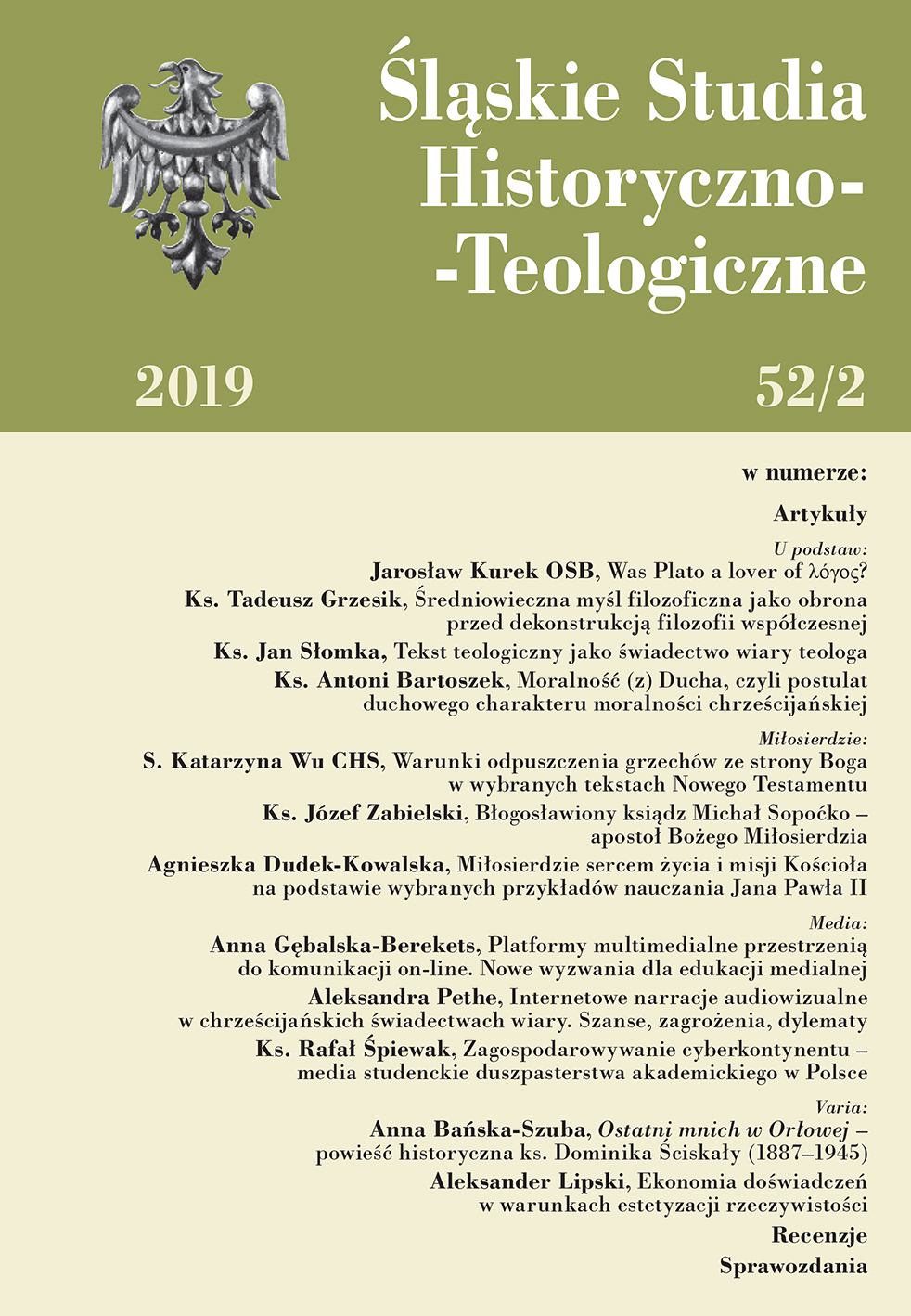Średniowieczna myśl filozoficzna jako obrona przed dekonstrukcją filozofii współczesnej
Mediaeval thought - a remedy for the deconstruction of contemporary philosophy
Author(s): Tadeusz GrzesikSubject(s): Philosophy of Middle Ages
Published by: Księgarnia Świętego Jacka
Keywords: deconstruction of philosophy;mediaeval philosophy;Christian doctrine;the mission of saving philosophy;
Summary/Abstract: The process of deconstruction of philosophy initiated by post-modern thinkers is aimed not only at philosophy, but also at European culture and the role philosophy has hitherto played in its formation. The paper has four parts. In the first, the author indicates certain instances illustrating how the present state of contemporary philosophy was reached by the disregard and culpable ignorance of mediaeval philosophy by philosophers who are professed Christians. (Roman Ingarden’s example). Anselm of Canterbury is the counter-example given as one who not only sought a more meaningful understanding of what he professed by faith, but also made use of free philosophical speculation in order to accomplish this. In the second part, Roger Scruton’s attempt to denounce the evil of Jacques Derrida’s idea of the deconstruction of philosophy is considered, taking also into account the role nihilism and relativism play in this procedure. In the third part, the author refers to the thought of G.K. Chesterton and of contemporary Polish philosophers: J.M. Bocheński, S. Swieżawski, B. Skarga, who by their appreciation of metaphysics, the Christian heritage of Europe and mediaeval thought, emphasize the benefit of these, not only for the human spirit, but also for the safeguarding of philosophy from the menace of disintegration present in the global ideology of political correctness and the ideas of post-modern thinkers. Lastly, in the fourth part, Ludwig Wittgenstein’s thought and example are considered as one whose radicalism is aimed at philosophy and religion, one endowed with a sense of mission as regards saving philosophy and religion from absurdities which hinder the proper functioning of these two pillars of human culture.
Journal: Śląskie Studia Historyczno-Teologiczne
- Issue Year: 52/2019
- Issue No: 2
- Page Range: 249-265
- Page Count: 17
- Language: Polish

